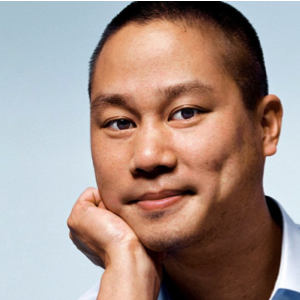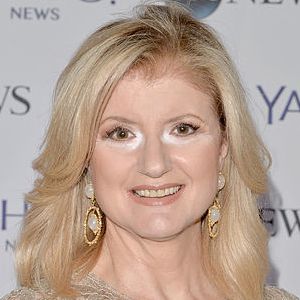Want to know what books Whitney Wolfe Herd recommends on their reading list? We've researched interviews, social media posts, podcasts, and articles to build a comprehensive list of Whitney Wolfe Herd's favorite book recommendations of all time.
1

From renowned cardiac surgeon Steven R. Gundry, MD, a revolutionary look at the hidden compounds in "healthy" foods like fruit, vegetables, and whole grains that are causing us to gain weight and develop chronic disease.
In the deadly game of predator versus prey, an adult gazelle can outrun a hungry lioness, a sparrow can take flight when stalked by a cat, and a skunk can let loose a spray of noxious liquid to temporarily blind a fox. The stakes aren’t always rigged against the prey. But when the prey is a plant, the poor thing is helpless, right? Wrong. Plants actually have an... more From renowned cardiac surgeon Steven R. Gundry, MD, a revolutionary look at the hidden compounds in "healthy" foods like fruit, vegetables, and whole grains that are causing us to gain weight and develop chronic disease.
In the deadly game of predator versus prey, an adult gazelle can outrun a hungry lioness, a sparrow can take flight when stalked by a cat, and a skunk can let loose a spray of noxious liquid to temporarily blind a fox. The stakes aren’t always rigged against the prey. But when the prey is a plant, the poor thing is helpless, right? Wrong. Plants actually have an impressive array of defense tactics to protect themselves from predators of all shapes and sizes—including humans.
Dr. Stephen Gundry explains that these defense strategies make the seemingly virtuous plants that we consume every day—fruits, vegetables, grains, nuts, and seeds—far less "good for us" than we assume. Plants may use physical deterrents (think: the spine-tipped leaves of an artichoke or the hard outer coating of a seed) as well as chemical warfare to repel predators. One of the most common forms of plants’ chemical defense system comes in the form of proteins called lectins.
Found in the seeds, grains, skins, rinds, and leaves of most plants, lectins act as smart bombs in the human body, causing toxic or inflammatory reactions that lead to serious conditions such as leaky gut, autoimmune disease, chronic digestive disorders, heart disease, and weight gain.
In The Plant Paradox, Dr. Gundry outlines the health hazards posed by lectins as well as the ways we can avoid them. The main sources of lectins in the American diet include conventionally-raised dairy products, beans, and other legumes, wheat and grains, and specific vegetables and fruits. The simple (and daunting) fact is, lectins are everywhere. But in The Plant Paradox, Dr. Gundry provides simple hacks we easily can employ to avoid this insidious plant toxin, including:
Vegetables like tomatoes and peppers are full of lectins—but most are contained in the skin and seeds. Simply peeling and de-seeding your favorite veggies makes them safer to consume.
Plants want us to eat them when they’re ripe to disperse their seeds! Eating fruit at the peak of ripeness—that means fresh, local, and seasonal—ensure that you will consume fewer lectins.
Think "whole grains" are healthy? Think again. All of those grains and seeds with hard outer coatings are designed by nature to cause digestive distress—and are full of lectins. In fact, wheat contains one very famous lectin: gluten.
With a full list of lectin-containing foods and simple substitutes for each; a step-by-step detox and eating plan; and easy lectin-free recipes, The Plant Paradox illuminates the hidden dangers lurking in your salad bowl—and shows you how to eat whole foods in a whole new way. less 
Whitney Wolfe HerdHe tells you plants are bad for you, essentially. And I don’t know what it is about this book, but it might be a little bit of hocus pocus, but I’m a full believer. (Source)
2

In Originals the author addresses the challenge of improving the world from the perspective of becoming original: choosing to champion novel ideas and values that go against the grain, battle conformity, and buck outdated traditions. How can we originate new ideas, policies, and practices without risking it all?
Using surprising studies and stories spanning business, politics, sports, and entertainment, Grant explores how to recognize a good idea, speak up without getting silenced, build a coalition of allies, choose the right time to act, and manage fear and doubt; how... more In Originals the author addresses the challenge of improving the world from the perspective of becoming original: choosing to champion novel ideas and values that go against the grain, battle conformity, and buck outdated traditions. How can we originate new ideas, policies, and practices without risking it all?
Using surprising studies and stories spanning business, politics, sports, and entertainment, Grant explores how to recognize a good idea, speak up without getting silenced, build a coalition of allies, choose the right time to act, and manage fear and doubt; how parents and teachers can nurture originality in children; and how leaders can build cultures that welcome dissent. Learn from an entrepreneur who pitches his start-ups by highlighting the reasons not to invest, a woman at Apple who challenged Steve Jobs from three levels below, an analyst who overturned the rule of secrecy at the CIA, a billionaire financial wizard who fires employees for failing to criticize him, and a TV executive who didn’t even work in comedy but saved Seinfeld from the cutting-room floor. The payoff is a set of groundbreaking insights about rejecting conformity and improving the status quo.
less 
Richard BransonToday is World Book Day, a wonderful opportunity to address this #ChallengeRichard sent in by Mike Gonzalez of New Jersey: Make a list of your top 65 books to read in a lifetime. (Source)

Tony HsiehIt's always interesting just to learn different perspectives, but to be careful of not trying to just say, 'Oh this book is the Bible, and we should copy that,' [...] Instead, I want us t0 take the parts that make sense for Zappos and try to incorporate them." (Source)

Arianna HuffingtonA fascinating, eye-opening read that will help you not just recognize your own unique gifts, but find the strength to challenge conventional wisdom to bring them to life. (Source)
3

Gregory David Roberts | 4.43
"It took me a long time and most of the world to learn what I know about love and fate and the choices we make, but the heart of it came to me in an instant, while I was chained to a wall and being tortured."
So begins this epic, mesmerizing first novel set in the underworld of contemporary Bombay. Shantaram is narrated by Lin, an escaped convict with a false passport who flees maximum security prison in Australia for the teeming streets of a city where he can disappear.
Accompanied by his guide and faithful friend, Prabaker, the two enter Bombay's hidden society of... more "It took me a long time and most of the world to learn what I know about love and fate and the choices we make, but the heart of it came to me in an instant, while I was chained to a wall and being tortured."
So begins this epic, mesmerizing first novel set in the underworld of contemporary Bombay. Shantaram is narrated by Lin, an escaped convict with a false passport who flees maximum security prison in Australia for the teeming streets of a city where he can disappear.
Accompanied by his guide and faithful friend, Prabaker, the two enter Bombay's hidden society of beggars and gangsters, prostitutes and holy men, soldiers and actors, and Indians and exiles from other countries, who seek in this remarkable place what they cannot find elsewhere.
As a hunted man without a home, family, or identity, Lin searches for love and meaning while running a clinic in one of the city's poorest slums, and serving his apprenticeship in the dark arts of the Bombay mafia. The search leads him to war, prison torture, murder, and a series of enigmatic and bloody betrayals. The keys to unlock the mysteries and intrigues that bind Lin are held by two people. The first is Khader Khan: mafia godfather, criminal-philosopher-saint, and mentor to Lin in the underworld of the Golden City. The second is Karla: elusive, dangerous, and beautiful, whose passions are driven by secrets that torment her and yet give her a terrible power.
Burning slums and five-star hotels, romantic love and prison agonies, criminal wars and Bollywood films, spiritual gurus and mujaheddin guerrillas – this huge novel has the world of human experience in its reach, and a passionate love for India at its heart. Based on the life of the author, it is by any measure the debut of an extraordinary voice in literature. less 
Richard BransonToday is World Book Day, a wonderful opportunity to address this #ChallengeRichard sent in by Mike Gonzalez of New Jersey: Make a list of your top 65 books to read in a lifetime. (Source)

Irina MarinescuI am always eager to learn how people think and form friendships, how they deal with life's challenges and still remain human. This book delivers that and even more! Shantaram takes you on an incredible journey and you return a changed person. (Source)
Don't have time to read Whitney Wolfe Herd's favorite books? Read Shortform summaries.
Shortform summaries help you learn 10x faster by:
- Being comprehensive: you learn the most important points in the book
- Cutting out the fluff: you focus your time on what's important to know
- Interactive exercises: apply the book's ideas to your own life with our educators' guidance.


